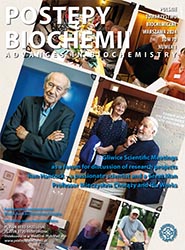MicroRNA-mediated gene regulation and the resilience of multicellular animals
DOI:
https://doi.org/10.18388/pb.2021_515Abstract
MicroRNAs are small RNAs that enable parts of the genome to regulate the other parts of the genome by RNA::RNA complementarity. Genes that encode microRNAs function as trans-acting regulators of hundreds of other genes, primarily by inhibiting the production of protein from mRNAs to which the microRNAs can bind by base pairing. MicroRNAs and their Argonaute partner proteins constitute a regulatory complex (the miRISC) that exhibits astonishing regulatory versatility. microRNAs have been shown to perform diverse roles in genetic regulatory networks (GRNs) – to control developmental switches, to dampen gene expression noise, to coordinate multigene functional modules, and more broadly, to confer robustness and resilience to developmental and homeostatic processes. Genetic analysis reveals that the function of particular microRNAs can be conditional, such that the microRNA is required under particular environmental or physiological conditions, but relatively dispensable under other conditions. The diversity and versatility of microRNA function in animal systems reflects the many ways that miRISC can be regulated by cellular signaling pathways, and the structure-function interplay among microRNA, target, and Argonaute.
Downloads
Published
License
Copyright (c) 2024 Victor Ambros

This work is licensed under a Creative Commons Attribution 4.0 International License.
All journal contents are distributed under the Creative Commons Attribution-ShareAlike 4.0 International (CC BY-SA 4.0) license. Everybody may use the content following terms: Attribution — You must give appropriate credit, provide a link to the license, and indicate if changes were made, ShareAlike — If you remix, transform, or build upon the material, you must distribute your contributions under the same license as the original. There are no additional restrictions — You may not apply legal terms or technological measures that legally restrict others from doing anything the license permits.
Copyright for all published papers © stays with the authors.
Copyright for the journal: © Polish Biochemical Society.




